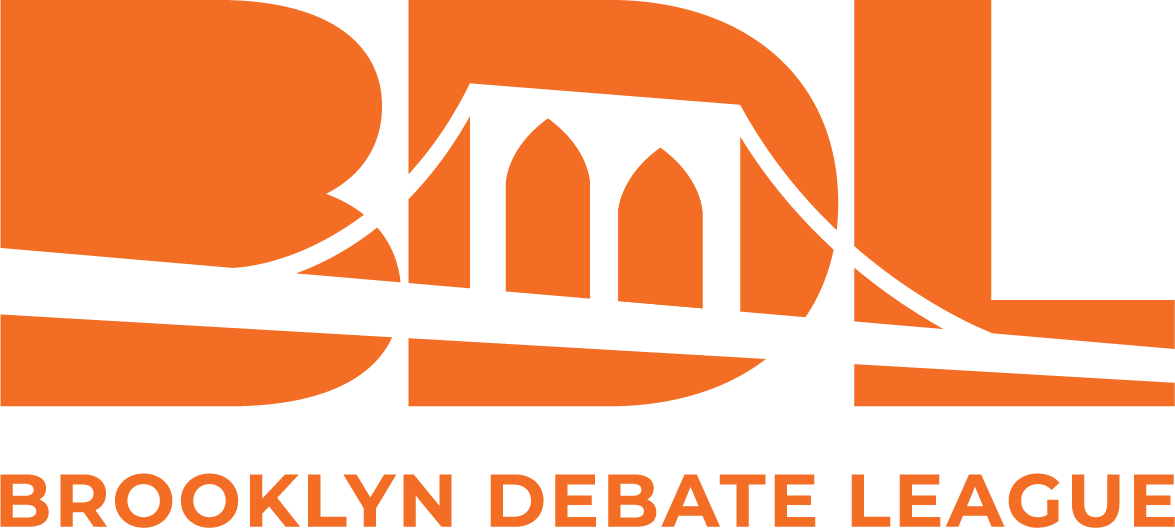Why use a sliding scale?
Judges ready?
I stand to support the resolution “BDL programs ought to use a sliding scale tuition model.”
Definitions: A sliding scale is a “price scale, as of medical fees, in which prices vary according to the ability of individuals to pay.”
At the individual level, this policy advances justice.
People ought to get what they deserve, and one important measure of justice is the provision of equal opportunity.
People do not choose the financial circumstances of their birth and childhood, yet these circumstances affect their access to quality education. We see this connection explicitly in private schools’ tuitions but it also holds true at public schools, where those with the highest levels of poverty still lag in funding despite legislative efforts. There’s a proven correlation between a school’s budget and the quality of their education.
Flat-fee tuition is unjust to the degree that the price is prohibitively high. It costs the BDL about $1200 per student to run our camp, too expensive for the 15% of the city’s kids who live in poverty. These students deserve a fair chance to attend our camp. Other summer options are growing increasingly out of reach, with the national average day camp cost increasing from $76 to $178 per day from 2021 to 2022.
Access to high quality education matters because schools are the first and most important proving grounds for young people. A person’s academic success will largely influence their choices for college, career, and social class. Almost half of US children born into households at the bottom 20% of the income ladder will remain at that rung for the rest of their lives, and academic opportunities is a primary mechanism for this stagnation. I wouldn’t propose a sliding scale for most goods and services, but education is a uniquely influential resource.
This is the land of opportunity, this is the city of dreams. Let’s do right by the kids and give everyone a fair chance to achieve greatness.
At the community level, a sliding scale enhances the education value of our programming.
Increasing equitable access to education is good for our camp. Our city’s schools are still the most segregated in the country and our league is one of the few institutions possessing the social network to actually get these students in the same room. It’s a chance for kids to break out of their bubbles, especially important in the age of important in the age of digital echo chambers.
Most of our courses explore current events and all of them build skills for healthy and productive communication. By their nature, these lessons only become more valuable with more diverse perspectives in the classroom. Studies show that diverse classrooms improve creativity, concentration, and work ethic. Anecdotally, many on our staff cite an integrated education as one of the most transformative experiences of their lives.
At the societal level, a sliding scale would contribute to economic growth and civic strength.
Our country depends on the best and brightest to rise to the positions of greatest influence and reward. We can use The World Economic Forum’s Social Mobility Index to measure meritocracy, which it finds is correlated with a country’s economic growth. This connection between social mobility and economic growth exists at the regional and local levels too.
The mechanism is simple: if you want to find the best people, consider all the applicants. Economists estimate that the US GDP improved by about 25% as women have been added to the professional meritocratic pool since the 1970s, an effect seen in other countries too. Similarly, by using a sliding scale to provide low-income students with educational opportunities that enable them to compete professionally, we’ll contribute to the national gains of the 2030s and beyond.
Americans should seek to improve our meritocracy and gain these benefits. We rank 27th on the World Economic Forum’s social mobility index, lower than most European and North American countries. It takes low-income families in the US a full generation longer to approach mean income than it does in Canada.
If we’re doing our job right, these impacts will have broader reach beyond GDP. By educating young people in how to communicate healthily and productively, we work to strengthen the social fabric of our society. As former Secretary of Education Arne Palmer said, “Competitive urban debate is almost uniquely suited to building what’s been called the ‘Four Cs’ of 21st century skills—critical thinking, communication, collaboration, and creativity. And to that list I might add a fifth ‘C’, for civic awareness and engagement.” Teaching these lessons equitably is critical to repairing our civic life.
Finally, this very camp wouldn’t exist if not for long-shot investments in kids of limited means, because some of those kids went on to found and staff the Brooklyn Debate League. Our coaches and alumni include many who were given long-shot opportunities and third chances, and who’ve made beautiful and productive work out of those openings.
In conclusion, I urge the judge to support this resolution. It would increase students’ access to justice, strengthen the quality of education at our programming, and contribute to the growth of our city and country.
Questions, suggestions, and rebuttals are welcome at joey@brooklyndebateleague.org. Who knows, maybe you’ll make it into a lesson plan.
